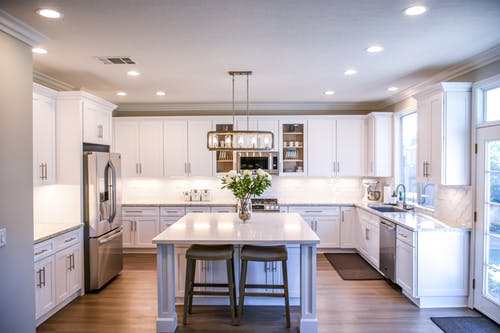Buildings insurance in the UK is a form of insurance cover taken out to cover the structure and integrity of buildings and premises’ ‘skeleton’ and actual structure. It covers the major structural features of buildings including the ceilings, doors, floors, roof, walls and windows and even fixtures and fittings with some policies.
Buildings insurance can cover additional features too and the amount which a buildings insurance cover will include will entirely depend upon the insurance provider you choose to go with, the underwriting of the policy and the provider’s specific terms of cover.
It is important to take time when choosing your building insurance provider; reading through the different policy options available to you and picking the best cover for your specific building’s insurance needs. This can help to ensure that you get all the important and vulnerable aspects to your building properly covered if any damage should occur.
What is Buildings Insurance?
Buildings insurance covers all elements related to the physical structure of the building, fixtures and fittings which in practice includes ceilings, doors, floors, roof, walls and windows in your property.
Mortgage lenders will require you to have your property covered by buildings insurance, much in the same way you will need a life insurance policy as a mortgage holder.
Buildings insurance is only necessary for those who have a mortgage on their homes, but it highly recommended for homeowners without mortgages too. For those who own their property, it is not a legal requirement to possess buildings insurance.
Why Do I Need Buildings Insurance?
Buildings insurance is there to protect your home or property and your subsequent finances in the event that your property is damaged. Repairing damage done to a building can cost a lot of money. By taking out an insurance policy, you can reduce the impact of damages to your property, only having to pay the manageable routine insurance fees to your insurance provider.
You will only actually be required to take out buildings insurance when you have a mortgage on your property and this as much a law as it should be a formality, much like you will need acoustic testing for new properties and sound tests for newly converted properties.
Those who own the property fully will not have to take buildings insurance out, however it can be of great use in the event that your property is damaged by factors outside of your control. For tenants and those renting, it is your landlord’s responsibility to get buildings insurance for the property in question.
Home loan and mortgage lenders will often offer buildings insurance as part of their deal; this can be optional or obligatory depending upon the provider and mortgage you are taking out.
What Does Buildings Insurance Actually Cover?
Buildings insurance will cover the cost of damages which affect your property when caused by certain events. These events will be due to external environmental factors that are out of the property owner’s control. Although each cover will vary slightly depending upon the provider you choose to go with, standard buildings insurance will tend to cover the following:
- Earthquakes
- Fire Damage
- Subsidence
- Mould
- Flood Damage
- Frost and cold weather damage
- Theft
- Vandalism
The majority of policies will also take care of your accommodation in the event that your property becomes temporarily uninhabitable. For example, if your property has been significantly damaged by a fire or is unfit to live in due to excess mould accumulating, your buildings insurance policy will help to cover the cost of providing temporary accommodation whilst your property is being repaired.
What Else Can Buildings Insurance Policies Cover?
Some insurers can provide additional cover, accounting for any damages caused in the event of an emergency (i.e. emergency services having to break into your house). Other features that buildings insurance policies can provide include covering the cost for having to replace locks on your property and installation of security alarms.
When looking for the right buildings insurance policy, consider all features of your property that you would like to cover, and ensure that any policy considered will cover the majority, if not all of these features. Comparing insurance policies through comparison sites is a great way to find good quality covers for the best prices.
How do I Apply for Buildings Insurance?
Before you begin to look for a buildings insurance policy, you must find out the necessary information regarding your property:
- Any and all environmental factors that are at risk of potentially damaging your property (e.g. trees, living in an area that is susceptible to flooding)
- The date that your property was built
- The materials that your property is made up of
- Whether your roof is flat and how much of it is flat
The post What is Buildings Insurance and do I Need It? appeared first on RJ Acoustics.



